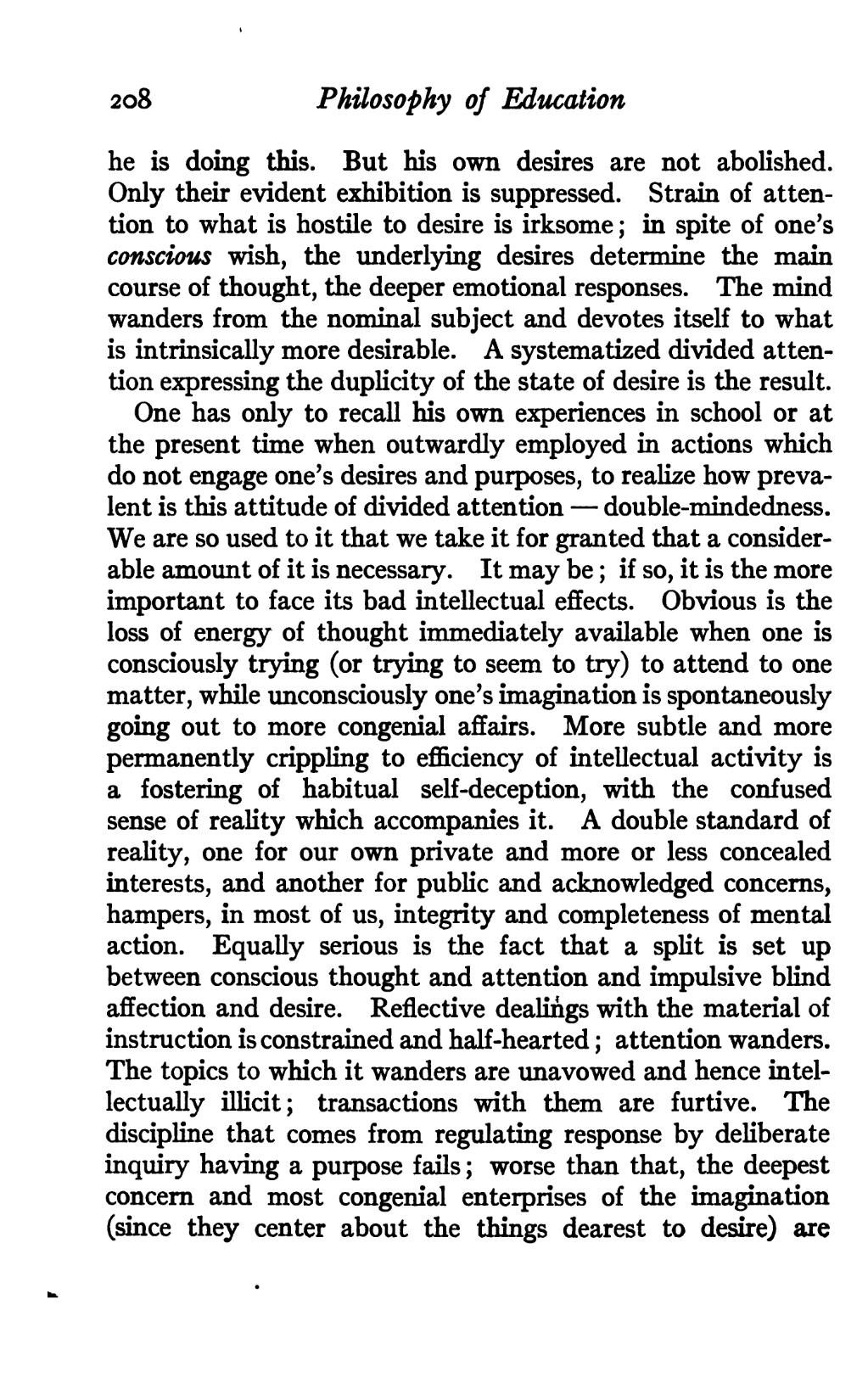he is doing this. But his own desires are not abolished. Only their evident exhibition is suppressed. Strain of attention to what is hostile to desire is irksome; in spite of one's conscious wish, the underlying desires determine the main course of thought, the deeper emotional responses. The mind wanders from the nominal subject and devotes itself to what is intrinsically more desirable. A systematized divided attention expressing the duplicity of the state of desire is the result.
One has only to recall his own experiences in school or at the present time when outwardly employed in actions which do not engage one's desires and purposes, to realize how prevalent is this attitude of divided attention—double-mindedness. We are so used to it that we take it for granted that a considerable amount of it is necessary. It may be; if so, it is the more important to face its bad intellectual effects. Obvious is the loss of energy of thought immediately available when one is consciously trying (or trying to seem to try) to attend to one matter, while unconsciously one's imagination is spontaneously going out to more congenial affairs. More subtle and more permanently crippling to efficiency of intellectual activity is a fostering of habitual self-deception, with the confused sense of reality which accompanies it. A double standard of reality, one for our own private and more or less concealed interests, and another for public and acknowledged concerns, hampers, in most of us, integrity and completeness of mental action. Equally serious is the fact that a split is set up between conscious thought and attention and impulsive blind affection and desire. Reflective dealings with the material of instruction is constrained and half-hearted; attention wanders. The topics to which it wanders are unavowed and hence intellectually illicit; transactions with them are furtive. The discipline that comes from regulating response by deliberate inquiry having a purpose fails; worse than that, the deepest concern and most congenial enterprises of the imagination (since they center about the things dearest to desire) are
